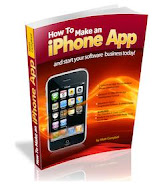
Custom Search
Friday, October 2, 2009
iPhone App for Car 2.0
The connected car, or Car 2.0 — a vehicle that’s linked to both the power grid and communication networks — may have a serious need on the iPhone. Major car manufacturers, startups building connected vehicle software, and car-sharing companies, are embracing Apple’s handset as the first mobile platform for managing connected vehicle services on the go. ZipCar, the country’s largest car-sharing network, said its iPhone app is now available. The application, which was announced back in June, will enable customers to find and reserve cars in its network and even unlock vehicle doors.
The iPhone has emerged as the mobile platform for development for Car 2.0 for a couple of reasons. Apple has created a wildly popular development program, which makes it easy for third parties like ZipCar to build applications. In addition, the iPhone itself is the mobile device of choice for the type of early adopters that have embraced car sharing and will likely embrace other new Car 2.0 technologies like electric vehicles.
ZipCar has built a company off of using digital intelligence and the web to enable customers to “share” cars, creating a new and more energy-efficient form of transportation. Customers can go online to find and book cars close to them, and the company manages car usage and services via digital and GPS technology embedded in the cars. So developing an iPhone app that can do all that is a wireless extension of its broadband roots.
ZipCar and iPhone customers also clearly have a lot of crossover: The main users of ZipCar are city-dwelling professionals with a decent income who are constantly on the go. That’s the same profile for the first rabid iPhone users. ZipCar says that “more than 25 percent of Zipcar members live their life from their iPhones.”
ZipCar’s iPhone app launch comes on the heels of car manufacturers and vehicle software startups also embracing Apple’s mobile device. Back in July Nissan announced that it would develop an iPhone application that will enable customers that buy its plug-in vehicles to manage a variety of connected car services.
ZipCar CEO Scott Griffith even thinks that cars themselves should be designed to function more like smartphones and the iPhone — with GPS, an intuitive user interface, a web connection, and a set of standard applications to help drivers, say, manage their fuel consumption, plus an open platform that would allow third-party developers to provide software that could be customized for each driver.
Source
The iPhone has emerged as the mobile platform for development for Car 2.0 for a couple of reasons. Apple has created a wildly popular development program, which makes it easy for third parties like ZipCar to build applications. In addition, the iPhone itself is the mobile device of choice for the type of early adopters that have embraced car sharing and will likely embrace other new Car 2.0 technologies like electric vehicles.
ZipCar has built a company off of using digital intelligence and the web to enable customers to “share” cars, creating a new and more energy-efficient form of transportation. Customers can go online to find and book cars close to them, and the company manages car usage and services via digital and GPS technology embedded in the cars. So developing an iPhone app that can do all that is a wireless extension of its broadband roots.
ZipCar and iPhone customers also clearly have a lot of crossover: The main users of ZipCar are city-dwelling professionals with a decent income who are constantly on the go. That’s the same profile for the first rabid iPhone users. ZipCar says that “more than 25 percent of Zipcar members live their life from their iPhones.”
ZipCar’s iPhone app launch comes on the heels of car manufacturers and vehicle software startups also embracing Apple’s mobile device. Back in July Nissan announced that it would develop an iPhone application that will enable customers that buy its plug-in vehicles to manage a variety of connected car services.
ZipCar CEO Scott Griffith even thinks that cars themselves should be designed to function more like smartphones and the iPhone — with GPS, an intuitive user interface, a web connection, and a set of standard applications to help drivers, say, manage their fuel consumption, plus an open platform that would allow third-party developers to provide software that could be customized for each driver.
Source
Labels:
iPhone,
iPhone App for Car 2.0






0 comments:
Post a Comment